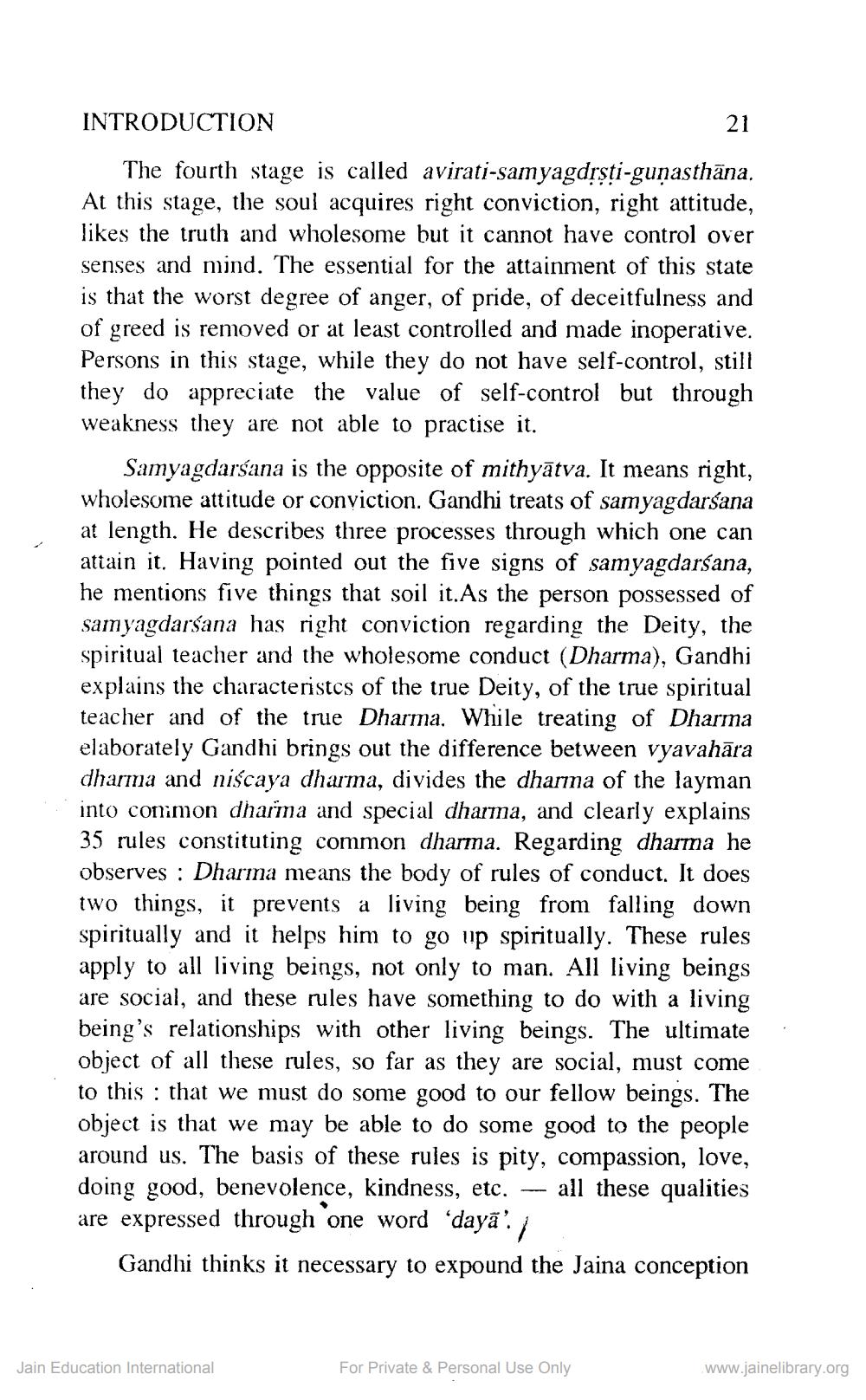________________
INTRODUCTION
21
The fourth stage is called avirati-samyagdrsti-gunasthāna. At this stage, the soul acquires right conviction, right attitude, likes the truth and wholesome but it cannot have control over senses and mind. The essential for the attainment of this state is that the worst degree of anger, of pride, of deceitfulness and of greed is removed or at least controlled and made inoperative. Persons in this stage, while they do not have self-control, still they do appreciate the value of self-control but through weakness they are not able to practise it.
Samyagdarśana is the opposite of mithyātva. It means right, wholesome attitude or conviction. Gandhi treats of samyagdarśana at length. He describes three processes through which one can atiain it. Having pointed out the five signs of samyagdarśana, he mentions five things that soil it. As the person possessed of samyagdarśana has right conviction regarding the Deity, the spiritual teacher and the wholesome conduct (Dharma), Gandhi explains the characteristcs of the true Deity, of the true spiritual teacher and of the true Dharma. While treating of Dharma elaborately Gandhi brings out the difference between vyavahāra dharma and niscaya dharma, divides the dharma of the layman into conmon dharma and special dharma, and clearly explains 35 rules constituting common dharma. Regarding dharma he observes : Dharma means the body of rules of conduct. It does two things, it prevents a living being from falling down spiritually and it helps him to go up spiritually. These rules apply to all living beings, not only to man. All living beings are social, and these rules have something to do with a living being's relationships with other living beings. The ultimate object of all these rules, so far as they are social, must come to this : that we must do some good to our fellow beings. The object is that we may be able to do some good to the people around us. The basis of these rules is pity, compassion, love, doing good, benevolence, kindness, etc. - all these qualities are expressed through one word 'dayā.
Gandhi thinks it necessary to expound the Jaina conception
Jain Education International
For Private & Personal Use Only
www.jainelibrary.org




